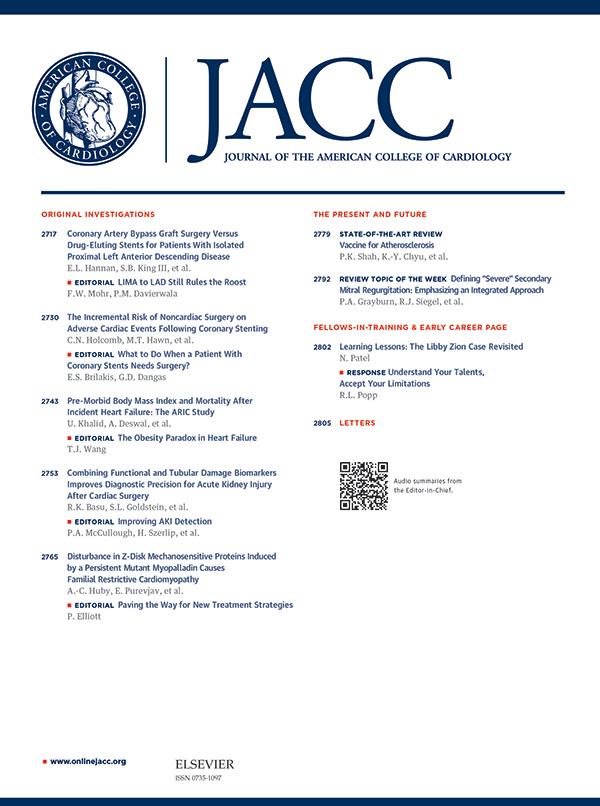人工智能在心血管临床试验中的应用
IF 21.7
1区 医学
Q1 CARDIAC & CARDIOVASCULAR SYSTEMS
引用次数: 0
摘要
随机临床试验是确定心血管疗法疗效和安全性的黄金标准。然而,目前的关键性试验成本高昂、时间漫长且不够多样化。新兴的人工智能(AI)技术有可能实现临床试验操作的自动化和简化。本综述介绍了在试验的整个生命周期中整合人工智能的机会,包括设计试验、确定符合条件的患者、获得知情同意、确定生理和临床事件结果、解释成像以及分析或传播结果。然而,人工智能也存在风险,包括产生不准确的结果、扩大对代表性不足群体的偏见以及侵犯患者隐私。医学期刊和监管机构正在开发新的框架,以评估人工智能研究工具及其生成的数据。鉴于随机试验在医疗决策中的重要作用,必须谨慎、透明地整合人工智能,以保护试验结果的有效性。本文章由计算机程序翻译,如有差异,请以英文原文为准。
Artificial Intelligence in Cardiovascular Clinical Trials
Randomized clinical trials are the gold standard for establishing the efficacy and safety of cardiovascular therapies. However, current pivotal trials are expensive, lengthy, and insufficiently diverse. Emerging artificial intelligence (AI) technologies can potentially automate and streamline clinical trial operations. This review describes opportunities to integrate AI throughout a trial’s life cycle, including designing the trial, identifying eligible patients, obtaining informed consent, ascertaining physiological and clinical event outcomes, interpreting imaging, and analyzing or disseminating the results. Nevertheless, AI poses risks, including generating inaccurate results, amplifying biases against underrepresented groups, and violating patient privacy. Medical journals and regulators are developing new frameworks to evaluate AI research tools and the data they generate. Given the high-stakes role of randomized trials in medical decision making, AI must be integrated carefully and transparently to protect the validity of trial results.
求助全文
通过发布文献求助,成功后即可免费获取论文全文。
去求助
来源期刊
CiteScore
42.70
自引率
3.30%
发文量
5097
审稿时长
2-4 weeks
期刊介绍:
The Journal of the American College of Cardiology (JACC) publishes peer-reviewed articles highlighting all aspects of cardiovascular disease, including original clinical studies, experimental investigations with clear clinical relevance, state-of-the-art papers and viewpoints.
Content Profile:
-Original Investigations
-JACC State-of-the-Art Reviews
-JACC Review Topics of the Week
-Guidelines & Clinical Documents
-JACC Guideline Comparisons
-JACC Scientific Expert Panels
-Cardiovascular Medicine & Society
-Editorial Comments (accompanying every Original Investigation)
-Research Letters
-Fellows-in-Training/Early Career Professional Pages
-Editor’s Pages from the Editor-in-Chief or other invited thought leaders

 求助内容:
求助内容: 应助结果提醒方式:
应助结果提醒方式:


